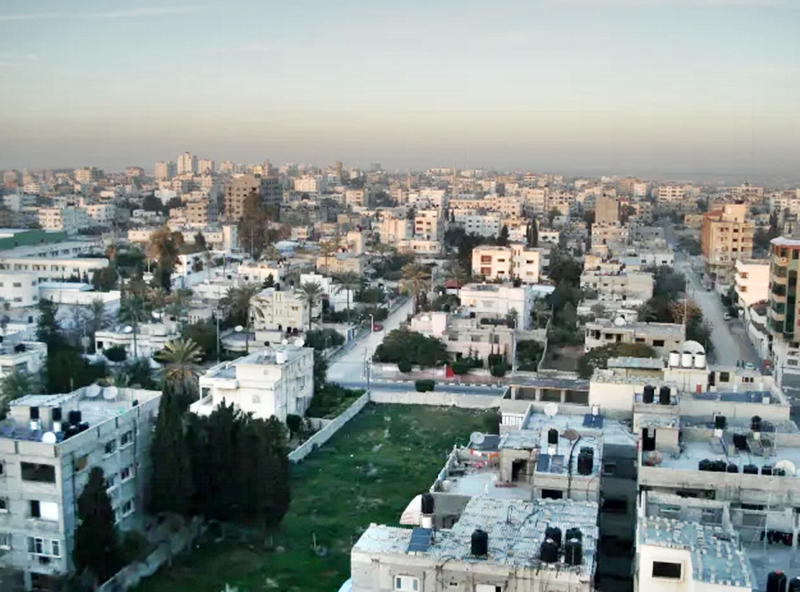The Genocide in Gaza Isn’t Just Attacking Our Bodies, It’s Erasing Our Memories

By Sheerpost-Abdallah Aljazzar - June 2, 2025
On the morning of May 6, I walked the dust-choked path to al-Sham Café — a café only in name. It’s just a sagging tent like the one I sleep in. Something no one would ever choose, unless life gave them no choice. The air still stank of fear. Ash floated in the breeze, and the sky hung low, gray and heavy with the ghosts of uncertainty.
Then I heard it: “Abood.”
Abood. Only my loved ones use it. I turned instinctively — and there was a woman, in her late 40s, smiling like we had survived something together, which, in Gaza, usually means we have.
“Ameera — from Rafah. Your mom’s cousin!”
Her eyes brimmed with recognition. Her smile stretched wide with memory. But my face? Blank. My mind scrambled through fog. I scanned her voice, her face, her history — and found nothing.
“It feels like a lifetime ago,” I managed.
She laughed. “You were always scribbling in your notebook — like a little journalist and program coordinator, asking big questions.”
I laughed too. But it felt borrowed — like I was playing a role in someone else’s memory.
When she walked away, waving like we had just reunited across decades, I stood there — empty. Or maybe frozen.
This isn’t the first time I have forgotten someone I should remember. Recently, one of my high school teachers waved at me — I knew he knew me, but his name dissolved in my brain. The other day, I looked at a family member and, without thinking, asked, “Who are you?”
This is what war does. It doesn’t just destroy homes. It erases the rooms in your mind.
I walk these broken streets like a ghost haunting his own life. I’m haunted — by hunger, by my brother Nour being missing, by a war that never lets us breathe. I forget why I stood up. I forget what I was doing. But I remember one thing with aching clarity: I want to leave Gaza.
And I tell myself: This is temporary.
One day, I will sleep on a real bed — not the earth, where ants crawl across my skin like they own it. I will light a match for a cigarette, boil water for coffee — not scavenge for wood to warm bread that barely counts as food. I will end breakfast with talk of dreams — not sighs over the price of a flour sack. I will wake up in a classroom in Washington, D.C. — not under a sky that feels like it wants me gone.
My seat in class is still waiting. But I’m still here — swatting at flies, queuing for drinking water, checking which kitchen might have free food today.
I just want to live like a human being. For one day. Just one. Please.
That evening, I sat outside our tent — a torn bed sheet stretched over bent rods — perched on a concrete block. My sister Ruaa sat beside me, feeding cardboard scraps into a fire the size of her palm.
“I saw Ameera today,” I told her.
She looked up. “Ameera from Rafah? The one you used to talk to all the time?”
“I guess,” I said. “But I didn’t recognize her at all.”
Ruaa didn’t flinch. “None of us remember everything anymore, Abdallah. We are not living. We are just trying not to die.”
She was right. My memory is eroding — not just the old, but the new. I forget voices. Faces. Laughter.
A friend recently showed me a photo from an English-language upskilling program I once coordinated at Gaza Sky Geeks, supported by Mercy Corps. I was sitting among bright-eyed participants, everyone laughing. But I remembered nothing — not the moment, not the names, not the dreams we once believed in.
Maybe forgetting is a shield. In Diving for Seahorses: The Science and Secrets of Memory, Hilde and Ylva Østby explain how trauma can fragment or erase memory entirely. When the brain is overwhelmed by fear, it cannot properly store or retrieve memories. We are left with shards — intense but disconnected.
Psychoanalyst Robert Stolorow calls this “trauma’s timelessness.” Time stops. The trauma becomes frozen inside us. And without someone to witness it, to hold it with empathy, it cannot heal. It becomes unintegrated — a wound that memory refuses to touch.
There is a girl here named Hiba. She is 8. Every few days, she walks past our tent holding a bundle of crushed wildflowers — the kind that still bloom in broken soil.
“These are for your stories,” she once told me. “Flowers help words grow.”
She places them gently by the tent flap, never asking for anything in return. I don’t even know where she finds them — maybe near the sewage ditch where no child should be playing. But she always shows up, her hands stained with green and hope.
“Don’t forget me, okay?” she whispered once.
“I won’t,” I said. And I meant it.
Because in Gaza, memory isn’t just memory. It’s resistance. It’s the only proof we were ever here.
I used to know what I loved. Now, I barely know what I feel. I don’t remember the taste of meat — just the dryness of bread. I don’t remember sleep — only the ache in my back and the dread of the next explosion.
My friends who made it out — who sleep now under quiet skies in the U.S. — send messages like, “Had coffee in bed. Didn’t hear a single drone.”
There, sleep is part of life. Here, sleep is something we beg for and rarely find.
And when I think of what I’ve lost, I always return to Nour.
Nour is — or was — my brother. A police officer. Steady. Kind. Always watching my back.
He used to tease me: “You’ll write us out of this mess.”
“I’ll keep the streets together,” he’d say. “You keep the words alive.”
He disappeared in May 2024, somewhere between Rafah and Al-Mawasi. He said he’d follow us if we were separated. He never did. We still don’t know what happened to him.
I scroll through lists of the dead. I search blurry photos of the missing. I beg my memory to hold his voice.
I want to leave Gaza not just to survive — but to remember. To sit in a quiet room and call back names without fear that the next second might steal them again.
People think we are only surviving bombs here. But we are also surviving erasure — of our stories, our hopes, our entire selves.
I want to remember Nour’s voice. Ameera’s laugh. Gaza Sky Geeks’ dreams. Hiba’s flowers.
Because here, forgetting feels like all of these things have died twice.
I write because in a world that’s stripping us of our stories, writing is the only way to reclaim them. Even when the past slips through my fingers like sand, these words are the roots that keep me grounded — a testament to all that we have been, and all that we have yet to become.Please share this story and help us grow our network!
Editor’s Note: At a moment when the once vaunted model of responsible journalism is overwhelmingly the play thing of self-serving billionaires and their corporate scribes, alternatives of integrity are desperately needed, and ScheerPost is one of them. Please support our independent journalism by contributing to our online donation platform, Network for Good, or send a check to our new PO Box. We can’t thank you enough, and promise to keep bringing you this kind of vital news.Donate OnlineSend a Check
You can also make a donation to our PayPal or subscribe to our Patreon.
Abdallah Aljazzar
Abdallah Aljazzar is a writer for We Are Not Numbers, a Palestinian youth storytelling project founded in 2015. He currently lives in Khan Younis, a bit north of Rafah in the southern Gaza Strip.- Author Site
